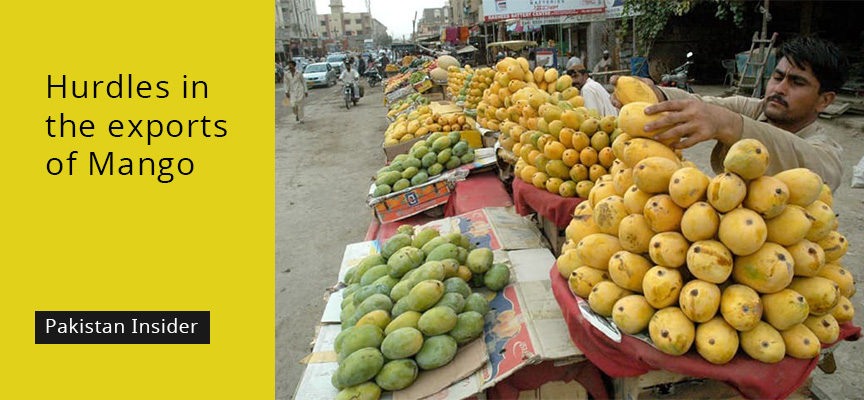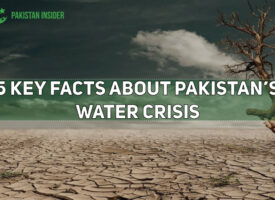Being the fifth largest mango producer in the world, amid its great popularity in many neighboring countries, Pakistan is currently facing numerous challenges in its exports. Although the country has been producing high quality product but it somehow lags in consistently meeting high quality standards required by many international importers.
Last year the country faced massive blow as there was a 40% reduction in its mango production with only 72,000 tonnes of international sales which was the lowest level in last five years. However, we have good news this year as exporters anticipate to earn USD 75 million this year with an exports target of 100,000 tonnes a target which was missed by far last year.
Surprisingly, this year’s production started on a very bullish note with expected production to hover around 1.6 million tonnes. One major driver was the ban on use of wooden boxes for fruits and vegetables. Higher production will give much needed boost to this year’s mango exports as well with sales of first five days supply orders reaching USD 1.1 million. Much of the smooth sailing was the result of optimistic exports trend to traditional markets such as Saudi Arabia, UAE, Central Asia, Hong Kong, Singapore, Malaysia, Canada, Europe and Scandinavia. Nevertheless, extensive competition from its newly explored markets such as South Africa, Japan, US, Russia and Australia is giving a tough time to the local exports.
The Iran fiasco…
Pakistani exporters despite pursuing many quality checks somehow failed to reach the optimum standards required by importing countries as it almost blew up its trading partnership with Iran which buys up to 25% of its mango exports. The issue started with Iran receiving a consignment of infected mangoes which almost led to a ban or partial ban on its exports to Iran.
Minister for food and security Sikadar Hayat Bosan set up an inquiry which revealed that fake phytosanitary certificates were issued from Multan officials regarding the consignment expected to reach Iran. A procedure called Hot Water Treatment (HWT) is conducted in which the product undergoes a treatment of 48 degree for 60 minutes to get an authentic phytosanitary certificate being a proof of its quality. This was considered rather offensive by Iranian officials as three consignments of Pakistani mangoes were rejected last year as the fruit was contaminated with fruit flies. Currently Iran has not made a decision regarding the fate of Pakistani mango exports as their delegation is expected to reach Pakistan to inspect the process of HWT.
Other hold ups…
Similar issues were faced in other regions as Pakistani mangoes of 4,49 kg were kept on hold by UK customs as they had live fruit fly larvae last year. Another bulky shipment of 5200 kg was halted by Holland officials as it has similar issues. Currently Pakistani mango exports have become skeptical and it was on the verge of being banned by European Union had it faced two other hold ups during the same period. Nonetheless, a warning has been issued by European Commission that if safety measures were not taken by our country to provide pest free production than it might face a ban just like India. They have also indicated that maximum limit for interceptions for mango or any agricultural product is five for any particular season.
Another importing country China is also visiting Pakistan in order to inspect its HWT operations at their plants by visiting three locations in Sind which is a part of their countrywide inspection drive.
It all boils down to the inability of Pakistani exporters to consistently deliver quality considering the quality demands of international importers. There are many facets to quality including efficient processing, advanced technologies, adaptation to modern refrigeration techniques and most importantly meeting quality standards set by importers.
image credit: dawn.com








No comments!
There are no comments yet, but you can be first to comment this article.